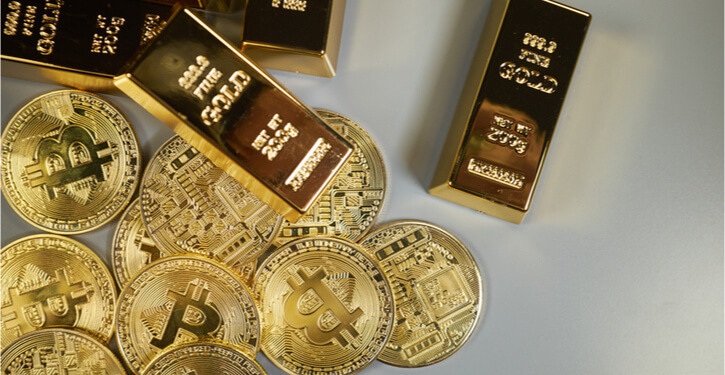
Goldman Sachs says Bitcoin doesn’t pose a threat to Gold despite investors diverting their funds from the commodity to the digital currency
Goldman Sachs’ head of commodities research says Bitcoin does not pose an existential threat to Gold, calling the cryptocurrency “the retail inflation hedge”. Jeff Currie made his opinions known on Friday as he pointed out similarities between BTC and Copper investments.
Currie added that Bitcoin (BTC) and Gold could coexist as he doesn’t think that Bitcoin’s rising popularity poses a threat to Gold’s position as the currency of last resort. He commented that Bitcoin’s surge had similarities with Copper.
When asked what they have in common, Currie stated that they are both risk-on growth proxies. Currie’s comment came after he and other Goldman Sachs strategists wrote that Gold’s recent poor performance versus real rates and the dollar was convincing some investors that Bitcoin was replacing Gold as the inflation hedge of choice.
According to the strategists, the recent decline in Gold’s price is due to a coronavirus vaccine-driven investment strategy that convinced some investors to purchase riskier assets like Bitcoin. They argued that the investors didn’t abandon Gold because of its diminishing value.
JPMorgan strategists recently revealed that Bitcoin’s growth was coming at the expense of Gold. The decline in funds invested into Gold exchange-traded funds (ETFs) coincides with billions of dollars entering the Bitcoin and other cryptocurrencies markets.
However, Currie emphasised that Gold was used as a defensive asset by investors, and there was no evidence to suggest that BTC stole demand from Gold. He stated that “We do not see evidence that Bitcoin’s rally is cannibalising Gold’s bull market and believe the two can coexist”.
Several analysts at JPMorgan and other financial institutions believe investors are moving their money out of Gold and into Bitcoin. Some companies have reduced their Gold exposure to buy BTC. They are using the cryptocurrency as a hedge against the devaluation of fiat currency.
According to JPMorgan’s report, Grayscale Bitcoin Trust has received nearly $2 billion from institutional investors since October. On the other hand, exchange-traded funds (ETFs) backed by Gold have seen an outflow of $7 billion over the past few months.
Despite the contrasting market performances, Gold ETFs still account for 3.3% of family office assets, while Bitcoin only accounts for roughly 0.18%.

